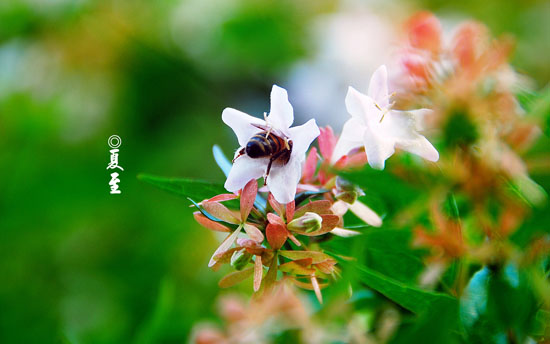"Northern Hemisphere" and the sunshine in many cities in south China may last fourteen hours perday. After this day, the spot of the direct sunlight gradually moves southward. Although,this day has the longest daylight, it's not the hottest. As traditional Chinese books described, there are three periods of the hot season. It starts around "Summer Solstice" and ends around "Autumn Begins". The temperature rises day by day and thehottest days come around mid-July to mid-August, where temperatures of some cities in China reach 40 degree Celsius. After this day, thunderstorms often come around afternoons and evenings. Old poems also describe this season as, "with sunshine in the east and rain in the west, you can't tell whether it's fine or not." People in ancient times called this day as "Summer festival" and during the Song Dynasty, officials were given 3 days holiday to rest at home.

Traditional Customs
In some provinces, there is the tradition of eating cold noodles on this day. Accordingto old customs in Beijing, when it comes to "Summer Solstice", people can start eating uncooked vegetables and cold noodles safely to stimulate the appetite and at the same time don't need to worry about having diarrhea. In Guangdong province, people often cook soups that will help insider system cool down and drink cold tea and sweet-sourplum juice.
Healthy Living Tips
During this period, to comply with the Yin and Yang in the natural world, people should sleep late, get up early and have a nap during the lunch time. Aged people should make sure they have at least seven hours sleep every day by sleeping early and get up early. Actually most of the people feel tired and sometimes even headache during this period. This is because when the temperature rises, people can only send out the heat by perspiration, which may cause dehydration and thus the insufficient blood supplying to the brain. Therefore, remember to drink a lot of water if feeling uncomfortable.

![Diseases, Symptoms, tcm, [tcmwindow.com]](/uploadFile/adImg/2015/11/11/f5cbfcc0-4df5-4646-9b9a-f316651a0199.jpg)





